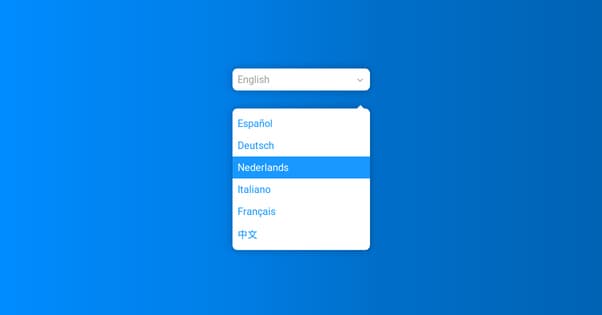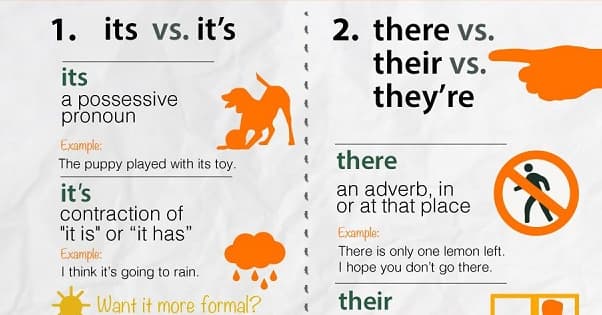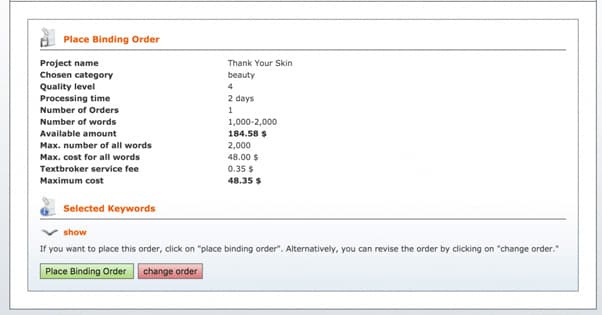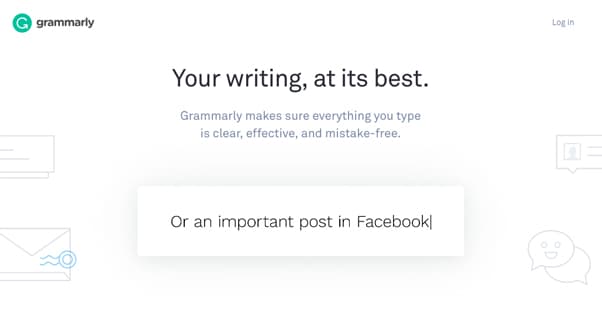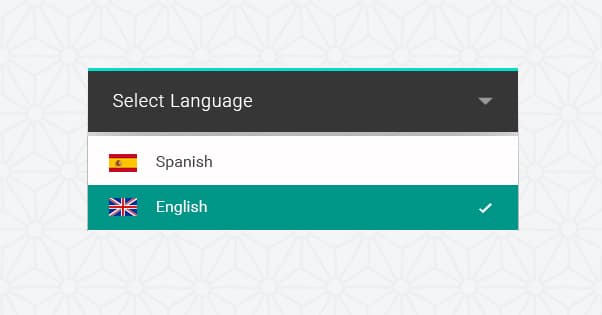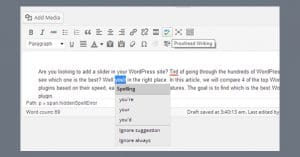Should You Blog if English Isn’t Your First Language?
Published by Drew Hendricks • Content Marketing • Posted September 20, 2018 ContentPowered.com
ContentPowered.com
Amongst a lot of internet users, particularly those residing in the USA, there’s a prevailing impression that the internet is English. Not that it’s in any way owned by England, but in some ways, Americans tend to have an impression like they created and own the internet, and that everyone else is just using it.
This impression is not exactly helped by the filtering Google puts into place in their search. It makes sense, of course. If I go searching for instructions on how to use a piece of software, a result in German or Farsi or Mandarin is not likely to help me out. When an English speaker is searching for results, Google wants to provide only useful results, and thus only shows English content.
The reality is that there are billions of pages on the web written in a wide variety of languages. Many larger, international sites tend to have multilingual options, with the ability to choose a country of origin or language to translate the content. Maybe not all of the content is available in that language, but enough is to make it useful.
All of this is a little beside the point, and serves only to illustrate the situation at hand. If you’re a non-native English speaker, ESL speaker of any kind, or even if you have less than perfect English grammar, should you bother blogging?
Arguments Against
I’m going to start out on the negative, and loop around to the positive, so don’t just read the subheading and think I’m telling you not to blog. I’m just going to start by stating the arguments you’re likely to see against blogging when you’re less than fluent in English.
First of all, it’s an unfortunate reality, but the internet is just chock full of racism. America is a big part of it, but there’s racism everywhere in the world. If you’re writing and your writing displays less than full understanding of English, a certain segment of the population is going to use that against you.
Now, a lot of these people are going to be silent, simply ignoring or blocking your site and your profiles on principle. A few will be more vocal, leaving rude comments or making a negative impact on your community. This largely won’t be a problem; you can simply block them and move on, but it’s still something that might happen, and it’s something you need to be aware of if you’re interested in blogging.
Secondly, you may have some comprehension issues depending on your level of English fluency. There are a lot of ESL writers out there, many of whom are perfectly coherent, and simply use some words or phrases in unconventional ways. You don’t have to adhere perfectly to the AP Style Guide in order to get your point across.
The issue comes if you do have trouble getting your point across. If you end up repeatedly using the wrong words or phrases, you end up creating sentences and blog posts that don’t mean what you intend them to mean. It makes blogging quite difficult if you aren’t able to convey appropriate meaning.
In some niches, this isn’t necessarily too bad. For example, if you’re writing a tutorial on how to accomplish a task in a given piece of software, a series of screenshots of the software will help clarify your instructions. Even with a few inappropriate choices of phrases, you’re still going to get your meaning across. Other niches, though, might not have such easy assistance.
A third potential issue is the stigma in English against ESL writing. Years ago, massive amounts of content spammed nearly every corner of the internet. When volume was more important than quality, webmasters would hire the cheapest possible writers they could to produce anything and everything. Sometimes the cheap writer was just spun content, sometimes it was an ESL writer from Bangladesh or the Philippines, and sometimes it was English-fluent writers who didn’t know their worth.
The glut of low quality content is, in part, what led to Google’s Panda update and the various subsequent quality-focused updates since 2011.
What this means is that any content that doesn’t meet certain minimum levels of quality will be ranked lower than similar content that meets those quality standards. This includes depth of content, but it also includes things like typos and poor grammatical issues. Google hasn’t said directly that they penalize grammar issues, but Bing has, and it can be inferred that Google includes it as one of their many algorithm factors.
Now, I know of several high profile blogs written by ESL writers, and yes, they have some grammatical errors and the occasional spelling issue. However, so do my posts, and so do any posts written by fluent English speakers. As long as your posts are intelligible and aren’t positively riddled with typos, you’re probably fine.
Most importantly, you want to triple-check any important zones of your site, those with more clout than the rest. H1 and H2 headings, the featured snippet or meta description for your page, your page titles; these should be free of errors.
Arguments For
All of the above are the issues you might encounter as a non-English fluent writer, trying to write in English, for a blog. As you can see, they’re basically all surmountable problems. Now let’s talk about reasons why you should blog, despite all of that.
First of all, you’re an expert in your subject, right? After all, you wouldn’t want to start a blog if you had nothing to say. In some ways, ESL speakers have a valuable position; a different life and different experiences lead to different perspectives.
If you’re an expert, you should write a blog. If you don’t think you’re an expert, maybe you should reconsider. That advice, though, has nothing to do with your native language. There are plenty of modern blog writers who would probably be better off not writing, but the current interplay between business and the internet means that to not blog means leaving tons of money on the table.
If you’re running a business of any sort, running a blog is important, and perhaps more important than ever. Again, that’s regardless of your fluency in any language. Having English as a second language simply means needing to work a bit harder at it.
If that alone isn’t enough to convince you, just think about how every problem you encounter is one that can be overcome with the right tools or assets on your side. Grammatical errors in blog writing can be circumvented in a number of different ways.
- Crank up the grammar and spelling checks in your word processor. MS Word and Google Docs both have pretty good spell checks and decent grammar checks. You can fix most of your egregious errors this way. You can also set up autocorrect rules to automatically fix common issues every time you type them.
- Use a third party tool like Grammarly. There are some things the built-in tools can’t handle, and specifically designed tools like Grammarly can. The trick here is learning which errors should be fixed and which can be ignored, since Grammarly will pick up on a lot of “errors” that everyone makes and no one cares about.
- Hire an editor. There are thousands of editors available at a wide range of price points who will edit the blog posts you write for you. Some will only handle spelling and grammar, while others will handle structure and content, perhaps even with fact checking and verification. Those latter are more expensive, but can be invaluable if you want to write a book.
- Hire a writer. After all, just because your name is on the post doesn’t mean you had to be the one to write it. It’s pretty easy to come up with topics that you then assign to a writer to flesh out for you. You can even write up drafts and tell them it’s a rewrite. Any number of freelance hubs like Textbroker, Writer Access, or Freelancer will hook you up with the people you need.
As an additional benefit, you can learn! As you write blog posts and correct them, via editors or tools, you’ll begin to see common errors you make. You can make a conscious effort to learn those errors and fix them before they need to be fixed by an editor. Eventually, you’ll reach an acceptable level of fluency and can cut down on the editing. I don’t recommend cutting out editing entirely – even a second run-through for proofreading yourself can be beneficial – but you don’t need to hire an editor for every blog post any more.
You can also take online classes to improve your English writing. There’s no shame in learning another language, after all. It puts you leagues above the legions of blog writers who can’t even tell the difference between Spanish and Japanese.
Fringe Benefits
If you’re bilingual or multilingual, you have some additional advantages that purely English bloggers don’t.
For one thing, you can always create a fork of your site in your other language. It opens up a niche you might not otherwise be able to access. It depends on how open that niche is in your native language, and how big of a market there is for your blog, but you can position yourself well with mirrors in multiple languages. Each time you write a blog post, write a translation in the other language, and post both on your website. There are pros and cons to this, but if you do it right, you can leverage each post to earn you basically double the value.
Even if you’re not writing your blog posts in your second language, being able to cater to that language when communicating with clients can open up huge niches you aren’t otherwise able to access. Many other businesses you’re competing with won’t be able to take on those customers because of the language barrier, but you’ll be able to snap them up. You can’t tell me that’s not a benefit.
Now, if your decision is picking one or the other, I would advise that you choose English. Choosing to write in a different language, while you may be able to dominate a niche more easily, is also going to be less lucrative. You’ll notice that most means of monetizing a website rely on English content, and those that support multiple languages will pay more for English. You can’t really do much about this, it’s just the nature of a global economy primarily dominated by English countries.
If you want to read a deeper analysis of this problem, of which language to use when starting a blog, Blog Tyrant covers it quite well here.
As far as I’m concerned, a few typos or grammatical issues aren’t all that important in a piece of writing online. While it’s clear that Google and the other search engines will penalize excessive errors, a few issues aren’t going to break the bank. It might be slightly harder to rank compared to the same content without the errors, but guess what? You can go back and fix the errors later! Nothing says you can’t, and you’ll get that ranking bump when you do, if they were hurting you in the first place.
If you have something to say, say it. That’s what the internet is for. Building a blog, putting forth your expert opinions, building resources for others, and catering to an audience that your skills can suit; it’s all good.

